12 Most Popular eCommerce Platforms to Use in 2023 [updated]
The selection of an eCommerce platform is a decisive factor for the success of any business. With the current technological development, building an eCommerce site is easy. Among the different eCommerce platforms choices, picking the right one is crucial. Because if you start with the wrong one, it can hurt your business. The ideal platform for you will majorly depend on the model of your business, type of products, goal to scale, and the capacities of your staff.
Quick Links
In this article, we have discussed the elements of an ideal eCommerce platform and suggested some of the best options for you.
Before we dive deep into details, let’s first understand what an eCommerce platform is.
Ecommerce Platforms:
An eCommerce platform is a plan of action that lets different groups conduct trade bringing customers and manufacturers together. They make networks and markets that permit clients to associate and perform transactions. It is the foundation of an internet-based business. An eCommerce platform allows organizations to launch, operate and run their online business.
Why do we need it?
An eCommerce business needs extra programming to oversee backend operations like record-keeping, order processing, stock administration, and customer care. This may require joining different software together.
Luckily, another variety of business programming can take care of this issue by incorporating all fundamental technologies in a single platform. The platform design isn’t just about thinking about specialized variables. It’s tied in with comprehension and making highlights for the entire business activity.
It serves four main functions
- Traffic building
- Matchmaking
- Giving basic services
- Establishing commands and principles
The people who want to take advantage of this chance can’t disregard advanced technology in selling items. Today, almost all brands are opting for an online presence.
Ensuring You Select the Best Ecommerce Framework
All online businesses are struggling to succeed in the market, but the results are not the same for everyone. One of the most common reasons for that is the wrong choice of the eCommerce platform. A few platforms have a ton of features, making launching fast and simple, however customization troublesome.
Different platforms empower completely customized sites, however, require lengthier engagements and expensive advancement. So, to choose among the popular e-commerce frameworks, you must consider the following while choosing a platform:
- Recognize business needs.
- Think about your spending plan.
- Adaptability and future development.
- Ensure there is customer care.
Now, without any further ado, let’s explore some of the best options.
BigCommerce:
BigCommerce is renowned for being the world’s top cloud eCommerce platform and is considered the best ecommerce framework. It’s a SaaS platform with exceptionally adaptable APIs and a low total expense of proprietorship.

BigCommerce gives you an extensive range of eCommerce devices with different features and choices. Its central features empower augmentation and association with other ecosystems. Organizations having both B2B and B2C clients can include this platform in their business model as it makes it simpler to create different cost records or indexes for various client groups.
Moreover, because of its intricate adaptability, BigCommerce can have fairly higher possibilities to learn and adapt than some of its counterparts. All things considered, the platform has 24/7 worldwide assistance and a huge number of official partners to help you start and keep up if necessary.
With dominating multi-channel selling, amazing SEO performance, and phenomenal theme designs, BigCommerce is the best eCommerce business platform. Its powerful web search engine for products can assist large brand owners.
The interface can permit you to customize your web-based shop without knowing how to code by utilizing the adjustable formats to plan your store, sell and market your items. As no design can be perfect, now let’s look at some of its disadvantages:
Disadvantages
- Conflicting rates in continuous analysis
- Costly for high volume sites
YoRent

Yo!Rent is a rental eCommerce platform solution for entrepreneurs to set up their online stores with sales and rental capabilities. The software is developed by FATbit Technologies, a leader in readymade eCommerce solutions. If you have a business idea that involves both renting as well selling products from the same platform, then Yo!Rent is what you should be looking up to. Additionally, you can also turn your business to only sales or rentals at any point in time in a matter of clicks with no technical expertise.
Coming to the features, Yo!Rent has all those functionalities that an eCommerce and online rental marketplace must have. The software comes with built-in modules such as inventory management, order management, pricing, price surge module, Tax management, product comparison, advance rental security deposit, and so on.
The rental software is fully customizable, comes at a one-time payment for a lifetime license, has free technical support for 12 months, and a fully white-label product to start your eCommerce business. The industries served by Yo!Rent include Cars, Heavy Equipment, Audio Visual Rental, Dress Rental business, and many more.
To Get an idea of how Yo!Rent materializes your business idea, you can fill out your requirements to schedule a free personalized demo.
Disadvantages:
Limited number of themes
Shopify:
Shopify is an eCommerce business software offering a platform that doesn’t require programming skills for configuration to open and run a store making the store management part easy. Some features require a subscription. Its ability to form integration with thousands of applications expands its practicality enabling you to activate google analytics and other similar applications.

It is considered to be the best platform for selling. Shopify is somewhat better in a few regions over other platforms as it facilitates quick loading times, is very simple to set up, experts are there to help you, allows one-click selling, permits various channels and social selling, and offers a great variety of themes. But like all the other things, they have drawbacks. The huge detriment they have is SEO.
Disadvantages:
- Evaluated ineffective in SEO in back-to-back examinations.
- Lacks customizing options in the checkout process
- Applications can add up and turn out to be expensive
Magento:
Written in PHP, Magento is an open-source programming language that can be launched on-site on your servers or in the cloud. Magento is one of the most popular eCommerce platforms. Although it has some complexities, its amazing advantages make it one of the best choices. It is exceptionally adaptable and versatile. Magento offers assistance from experienced developers. It has engineers ready to offer services for a specific cost.
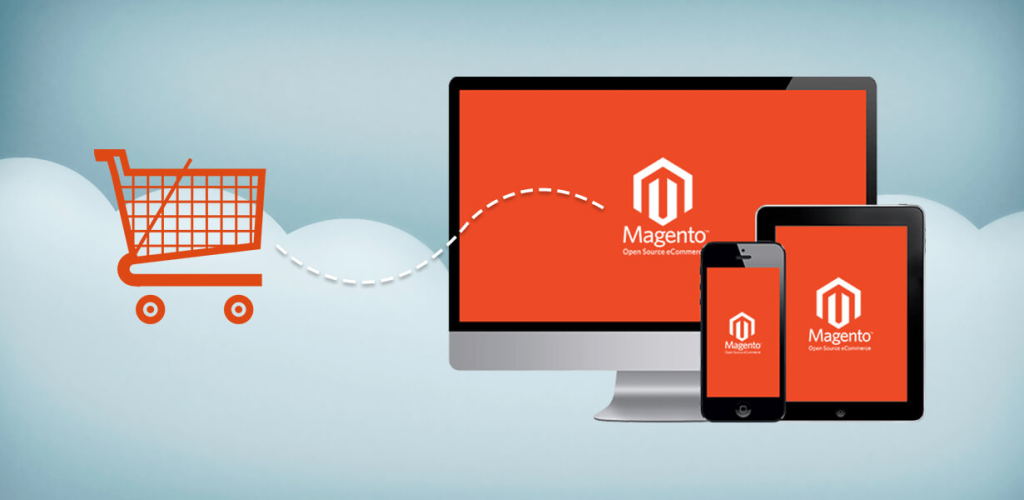
There’s additionally a commercial center where you can get extensions and themes to enhance the operational efficiency of your platform. Since you have your model of the product, you’ll need to introduce your updates and security patches. That’s a flaw leading people to choose other platforms over Magento.
Magento’s generally utilized free, however, there’s a paid level for big business for huge eCommerce-based business organizations. It is costly yet it’s on the cloud and is quicker. Moreover, it’s rich in peculiarities, has solid SEO, allows one-click selling, is adaptable and profoundly adjustable, etc. With its dynamic setup, Magento shopping cart configuration is receptive to cell phones, tablets, and other cell phones. Moreover, it has now become a part of the Adobe Experience Cloud and can merge with its applications like
- Analytics
- Customer information platform, etc.
By offering adjustable security authorizations, Magento allows you to adjust different degrees of safety consents, control inner access, and guarantee your site’s functionality. But there are some disadvantages too.
Disadvantages:
- Expensive designs and themes.
- Slows down easily
- Requires Development Skills
- Requires adequate space and memory to perform well
YoKart
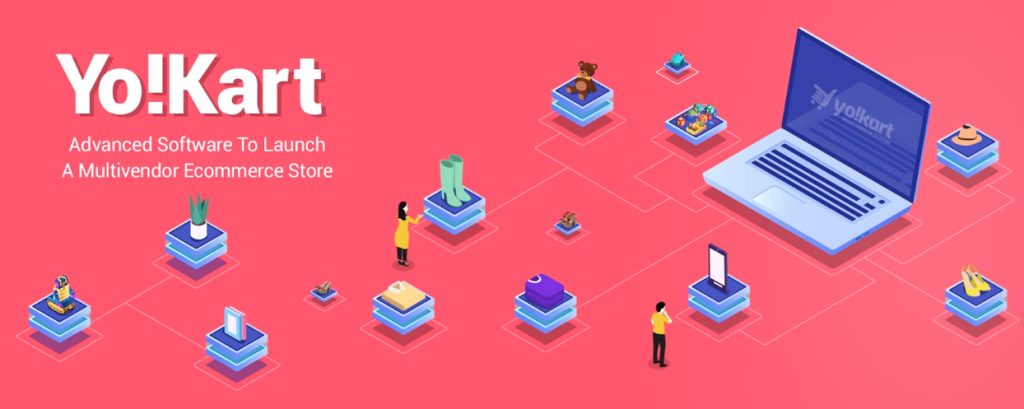
Yo!Kart is an online multivendor eCommerce platform to build a future-ready business ecosystem. It is a scalable, integrated, and industry-agnostic platform to manage all the aspects of a B2C or B2B online business with easy-to-use interfaces. It allows business owners to digitize their processes and operations with workflows tailor-made to suit their business needs.
Yo!Kart allows business owners to localize their eCommerce for any language and currency, market their products/services, and manage their orders and delivery options seamlessly and without any hassle. The platform also ensures an excellent buying experience with smooth product discovery and search, a multitude of payment methods, and optimal shipping cost calculation.
Furthermore, Yo!Kart also keeps vendors happy with easy onboarding, automated sync, and easy payouts. In short, Yo!Kart is an all-in-one eCommerce solution that lets you scale your marketplace business by automating processes with intuitive dashboards and tools and streamlined workflows.
Disadvantages:
- Changes in design themes are limited and customizations are paid.
- First-time users need to invest time to learn the system.
Volusion:
Volusion was one of the first competitors in the SaaS online business space. It has been in the business for around twenty years and offers one eCommerce answer that assists you with effectively making, managing, and extending your online store.
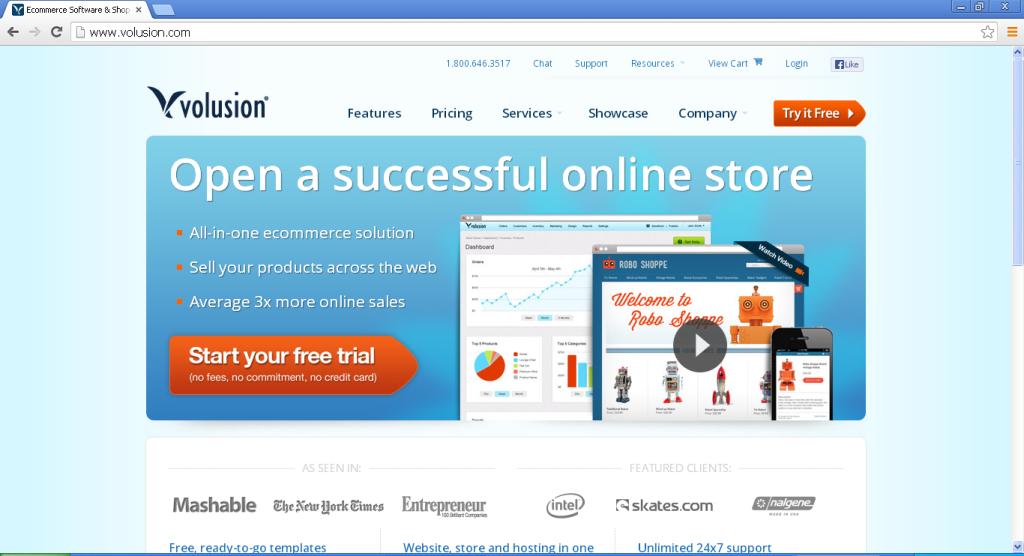
Their shopping cart management gives a blend of center trade and SEO/advertising apparatuses for beginning and developing your business. It’s an extraordinary choice for those selling actual items as it doesn’t facilitate automatic downloads after payment. It can enable you to launch online stores with numerous helpful attributes.
Volusion gives simple web designs with drag and drop and in-page changing. You can enjoy eleven free themes and a large number of premium themes.
The dashboard is well organized with all of the fundamental activity regions in the top route menu. You can likewise oversee inventory and practice selling from that point. The advertising choices incorporate
- SEO
- eBay
- Amazon
- prizes, and coupons.
Volusion offers are vital to increasing your business. With strong SEO characteristics, you can undoubtedly follow and deal with all your metadata to keep your pages, items, and classes SEO-accommodating.
Disadvantages:
- Doesn’t facilitate up/cross-marketing
- Several sites have a bad URL structure
It additionally doesn’t facilitate writing for a blog which is a disadvantage for the most part in this day where building SEO with web journals is the best.
Shift4 Shop:
Shift4Shop is not as good as BigCommerce or Shopify. It is equipped with more amazing features than most SaaS platforms, yet that can make it somewhat difficult to utilize. The formats they offer are more modern, however, they feel old.
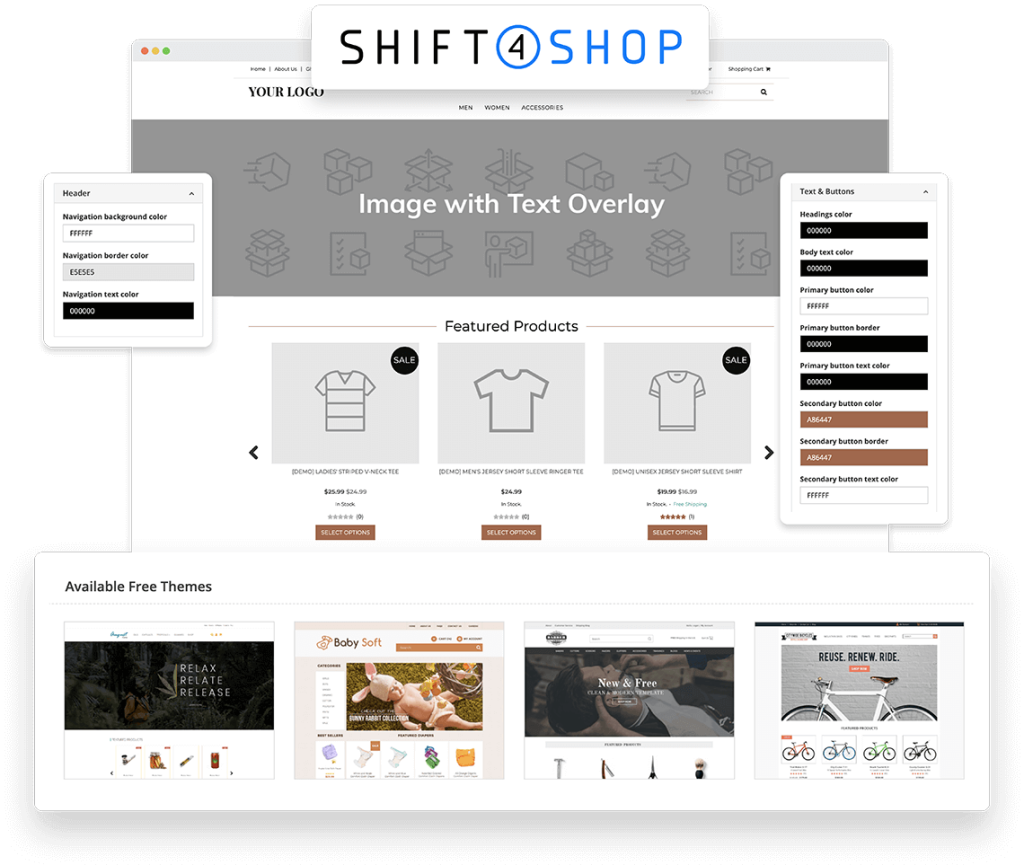
Likewise, lacking the drag and drop option, it’s difficult to comprehend and customers find it hard to become accustomed. Luckily, there are assistant developers to help with themes and different alterations.
Since its launch, Shift4Shop has served more than twenty thousand e-commerce-based organizations. They have a few functional elements like limitless storage options and no exchange charges and they support multi-channel selling.
It’s not really for amateurs. Even though there is a great onboarding video when you sign in to your dashboard, the entire activity is difficult to sort out; the site isn’t visually attractive.
Disadvantages:
- Layouts are in line with patterns but not advanced
- Not good for client assistance
- Big problems in redesigning
WooCommerce:
WooCommerce is a well-known self-facilitated, open-source system for WordPress sites. Created and kept up with via Automatic, WooCommerce has a nice starter determination of fundamental eCommerce business elements for checkout.
WooCommerce is the best single platform to offer all one solution for running an online business and associate web pages under one rooftop. Since it’s open-source, you have full oversight over the customization and management of your store. You’ll likewise observe an enormous number of WooCommerce Meetup groups that you can take advantage of for operating with your store.
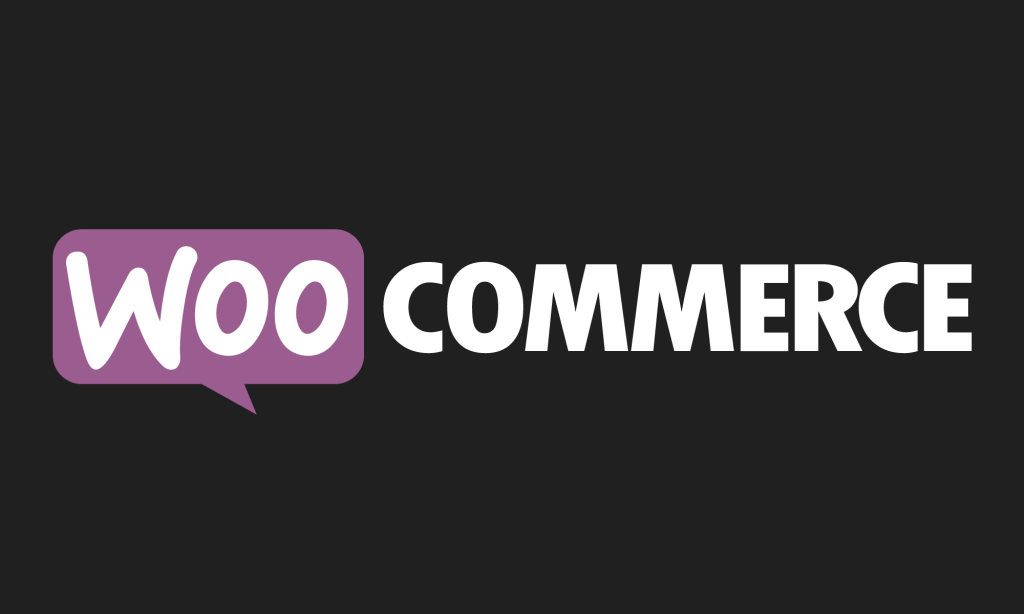
WooCommerce is a free WordPress module that empowers people to transform their WordPress sites into online stores and offers extra paid elements and navigating choices to smooth out the operational efficiency of the shopping cart. This open-source platform is an ideal answer for little brands with WordPress improvement assets as it will be not difficult to customize.
Through its protected installment processor, WooCommerce guarantees PCI consistency and ensures safe correspondences between your clients and your server.
Additionally, there are extensions accessible for incorporating installment entryways, online media, email showcasing, etc.
Disadvantages:
- Expensive facilities
- No assistance virtually
Another inconvenience is that it doesn’t have a lot of essential shopping cart elements, for example
- single-page checkout
- deserted cart recovery
- No concessions or discounts
Kibo:
Kibo Commerce is a brought-together trade item intended to empower your groups to convey customized encounters across touchpoints. It is an API-first of its type on a microservices model.
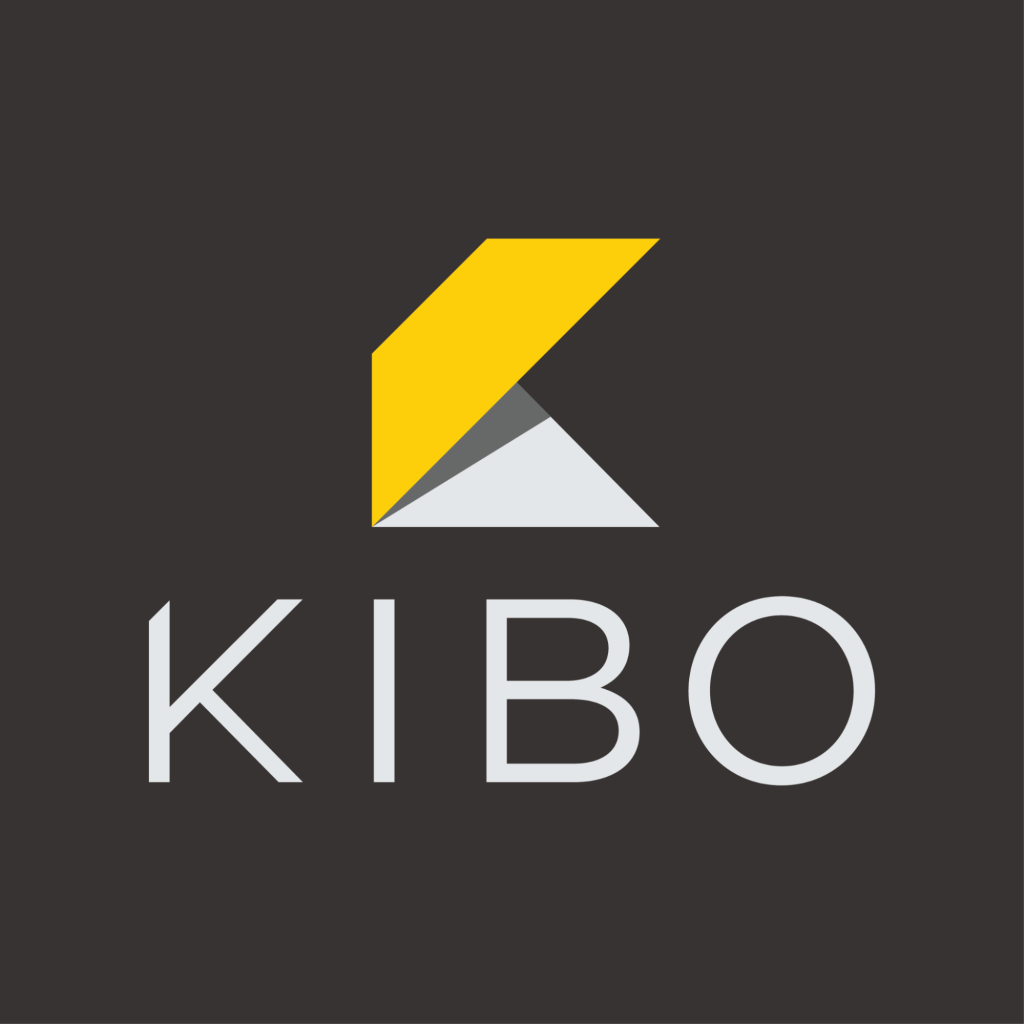
Disadvantages:
This developer-driven eCommerce site can be perplexing, with a precarious expectation to learn and adapt and possibly cost you a significant amount of money for full ownership. Their market presence is low and it may become hard to track down the data you want on the web. Moreover, their number of solution partners is very low to assist you with store functionality.
Salesforce Commerce Cloud:
Salesforce Commerce Cloud is a SaaS eCommerce platform for organizations that need to smooth out their omnichannel activities. It empowers you to oversee deals in advanced and actual channels and incorporates local AI instruments for customization.

Disadvantages:
One weakness of Salesforce Commerce Cloud is the generally modest number of developers that know about planning and developing.
Squarespace:
Squarespace empowers fast and simple site updates and media operations rather than requiring an external designer. It is a simple-to-utilize and friendly eCommerce platform that enables clients with no coding knowledge to make wonderful sites. Regardless of whether you’re an amateur or expert brand, it gives you all that you want to run and develop your business site.
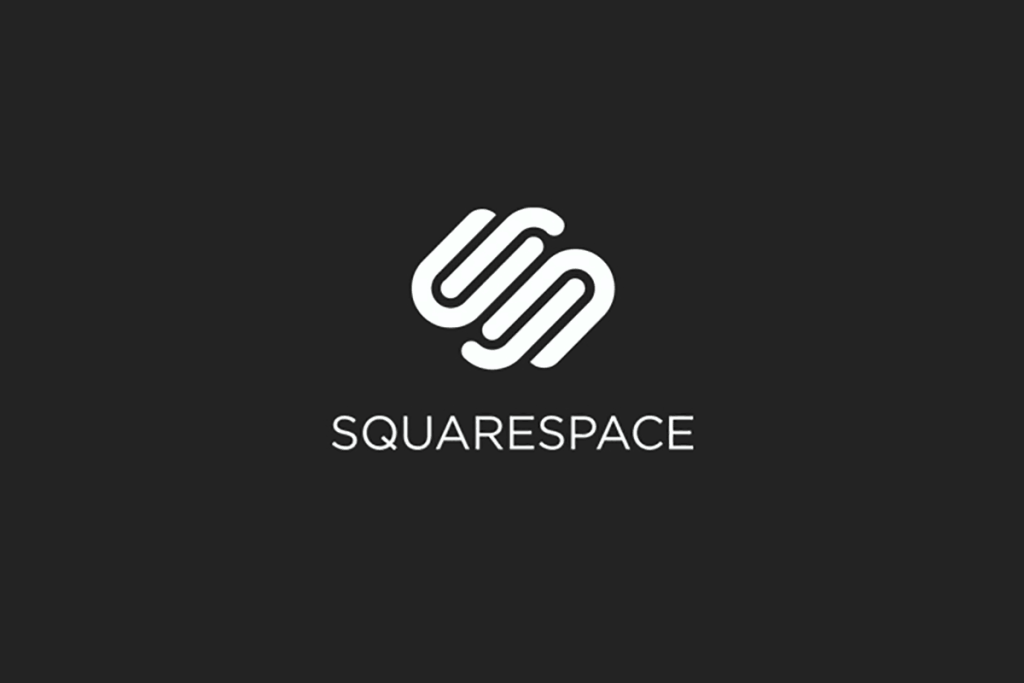
This SaaS system offers format plans and inherent inventory instruments. It offers various options and features for building an eCommerce site and gives hosting in every single accessible package.
In any case, if you find it complex, you might miss a few vital components that could take your site much further.
Disadvantages:
But like all others, it has disadvantages too like it only offers reconciliation options with four-installment processors and you’ll have to pay a 3% exchange charge on each deal. Other disadvantages include:
- No outsourcing
- No advertising mechanization
- No Amazon integration
- Could be quicker at the cost
Are you looking for a Squarespace Promo code? On review sites like MyBestWebsiteBuilder you will be able to find the complimentary Squarespace coupon offers and more.
Wix
Wix is one of the most simple-to-utilize eCommerce platforms giving simple choices to create a site with serverless technology and simple coding. It’s the best fit for new web-based stores at a reasonable cost. It is a SaaS platform intended for small companies.
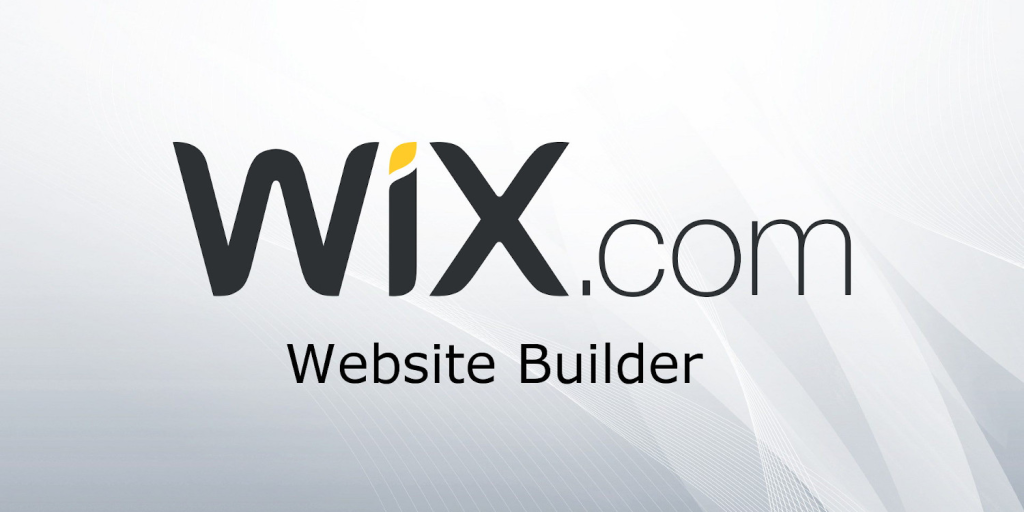
It’s speedy and simple to get everything rolling, and it offers the drag and drop option to build your site. Moreover, it offers more than five hundred template designs. Wix has made considerable progress in a couple of years. Presently, Wix is a significant power in the online business space and they convey astonishing incentives for entrepreneurs like freight forwarding companies in Dubai.
Wix’s internet business highlights have developed radically in a couple of years, they currently offer multi-channel integration, deserted cart recovery, outsourcing, and print on request abilities.
Disadvantages:
- Many sites are not safe
- Needs upselling features and latest automation options
- Hard to completely customize the format
Why WooCommerce is the Best Choice for Your Online Store?
WooCommerce stands out as a top option for anyone looking to build an online store. This platform…
0 Comments8 Minutes
How to Use AI-Powered SEO Tools for WordPress eCommerce
SEO is a critical factor in the success of any e-commerce WordPress store. As competition…
0 Comments11 Minutes
Why Short-Form Videos Are the Future of Content Marketing
Your Instagram customers spend over 50% of their time watching short-form videos and reels. Rather…
0 Comments12 Minutes
The Role of Digital Marketing in Business Growth
Online marketing touches every aspect of a business, whether it is initiating the idea or for an…
0 Comments3 Minutes
AI Meets Authenticity: Balancing Automation and Human Touch in Content Marketing
Is your brand starting to sound like a robot? In a world where algorithms write faster than any…
0 Comments8 Minutes
Essential Tools for Enhancing Web Design and UX Hosting
Have you ever visited a website that felt slow, clunky, or confusing? A website that is poorly…
0 Comments11 Minutes
How a Mini Cart Transformed My Store’s Shopping Experience
Okay, real talk—running an online store is hard. You think you’ve got everything figured out, you…
0 Comments9 Minutes
Balancing Your Security Initiatives With Industry Compliance Requirements
Managing a business today comes with a number of daily battles that need to be fought. Resources…
0 Comments11 Minutes








